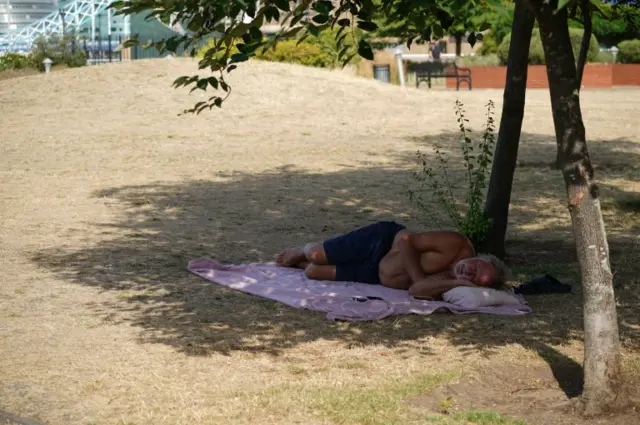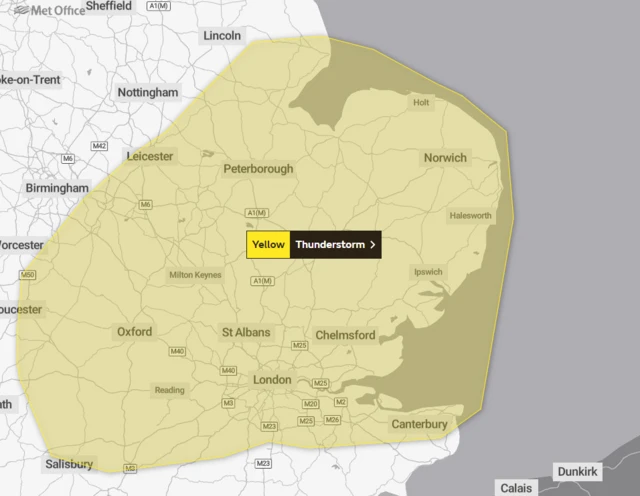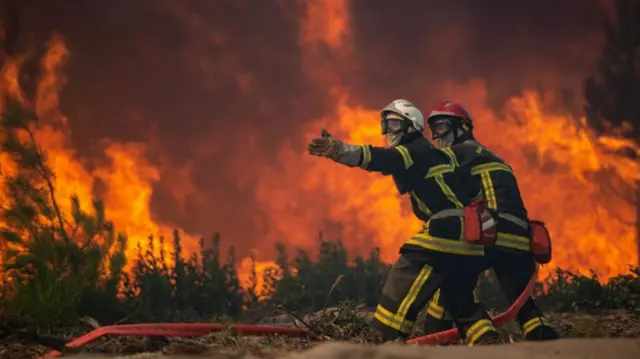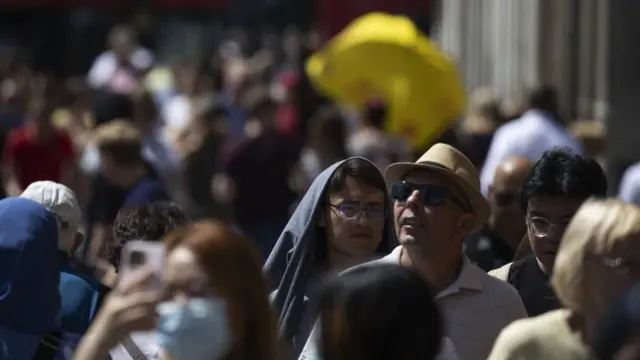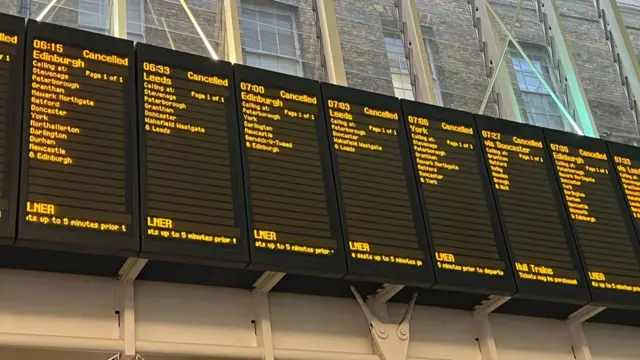Hottest ever temperature - and before middaypublished at 12:04 BST 19 July 2022
If the provisional temperature measured in Surrey holds, it would be 0.4C hotter than the 2019 record before the UK has even got to lunchtime.
For comparison, around this time yesterday the hottest temperature was 34.8C, and the hottest point across the whole day in the late afternoon was 38.1C.
Forecasters expect the temperature to continue to rise through the afternoon, so this is very unlikely to be the last record exceeded today.




